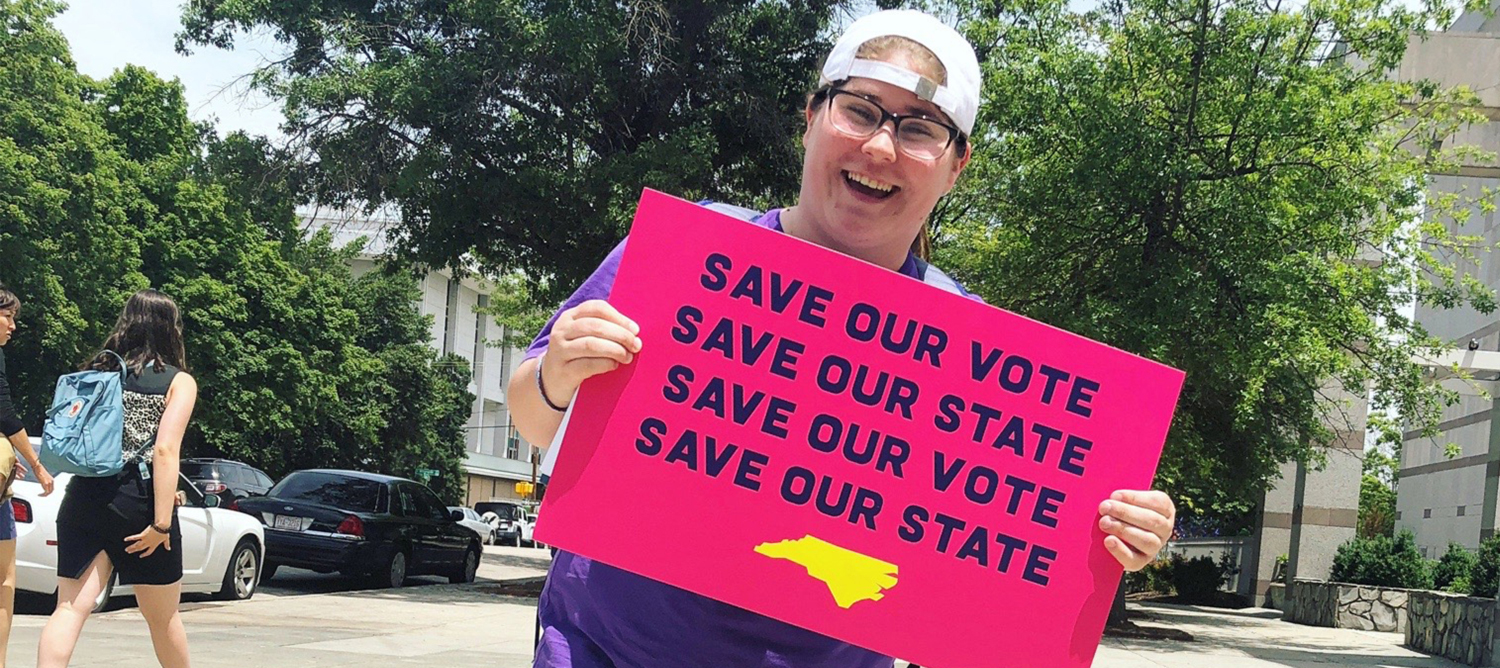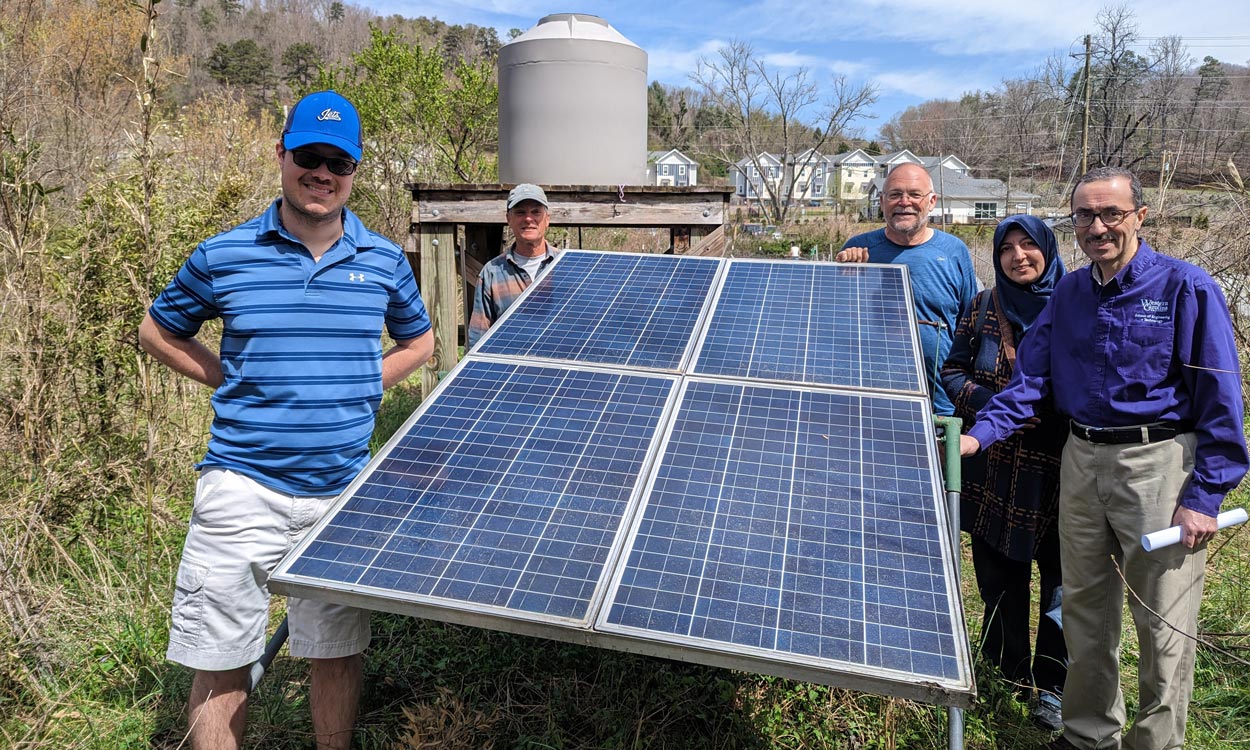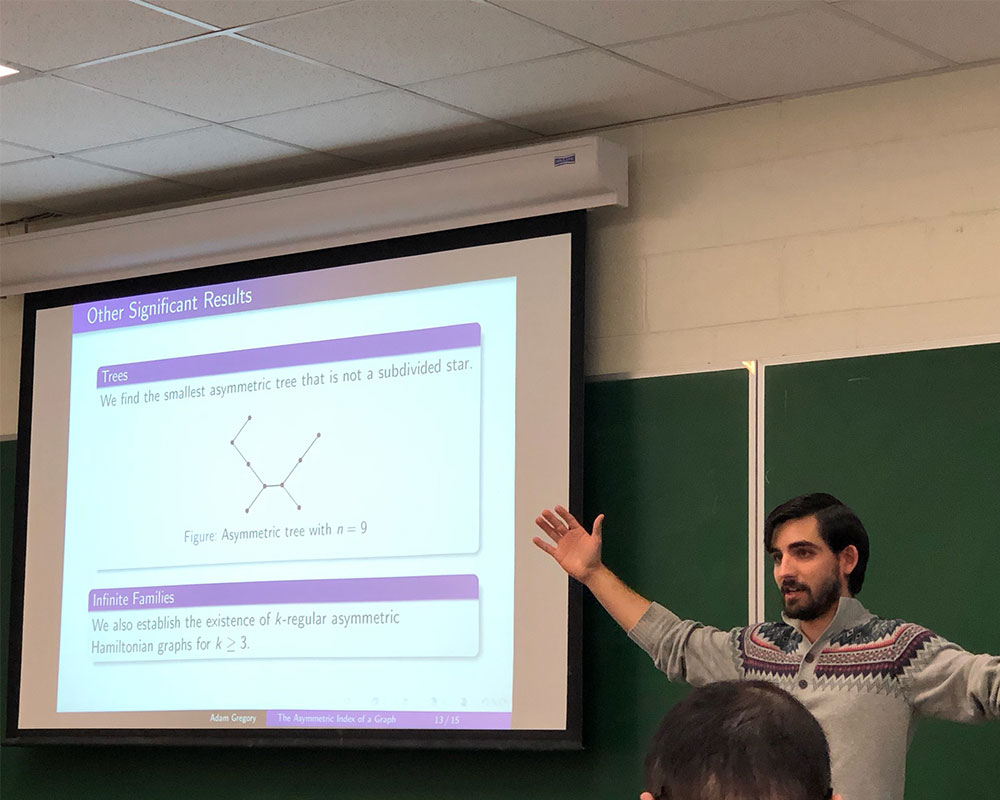





Sara Mears
Finding an Outlet for Activism with AmeriCorps after Graduation
Those “I Voted” stickers Sara Mears’ parents wore after casting their ballots each election during her childhood really stuck with her.
Now she hopes to persuade others that voting is the best way to show one’s citizenship.
Mears, who will graduate in May from Western Carolina University with a degree in
political science, will head to Sacramento, California, in July to work for AmeriCorps’
National Civilian Community Corps, a program that engages young people in team-based
community service across the United States. After a month of training, she’ll spend
the next 11 months working with the Federal Emergency Management Association in rural
communities throughout the Pacific region.


“My program is really focused on working alongside FEMA to make sure a lot of smaller
and rural communities know how to get help,” said Mears, who grew up in Cary. “We’re
the group of young people who have agreed to be on the frontline of that assistance,
whatever that may be.”
Mears said she became aware of the importance of community involvement during her
senior year in high school. “The 2016 primary aligned itself with my civics class,
and once it clicked, it clicked,” she said. “Everything I have done since then has
come down to me trying to convince people their voice matters.”

Since Mears arrived at WCU as a freshman in 2016, she has served as a senator and
as director of public relations and marketing for the university’s Student Government
Association; as vice president of media outreach for the University of North Carolina
Association of Student Governments (UNC System-wide student government association);
as a team leader and in public relations and marketing for the Student Democracy Coalition,
WCU’s nonpartisan civic engagement organization; in participant relations and as director
of internal operations for Miracle at WCU; as photographer for The Western Carolinian,
WCU’s student-run newspaper; and at A.K. Hines University Center, with the Department
of Campus Activities.
By immersing herself in university government, she has seen firsthand the effect that
willful ignorance has on society.
“Everything I have done since then has come down to me trying to convince people their voice matters.”
“There is some cynicism, but more than that there is apathy,” she said. “I don’t know
what’s easier to work with. The hardest thing for me to learn has been that there’s
so much that I don’t know, but the average person knows so much less about politics,
and not because there’s a lack of intellect, but because people choose not to plug
in.”
Her strategy has become to “meet people where they are and with what they know” to
help them understand how local, county and state elections can affect them more than
they realize, even at WCU, where the chancellor is appointed by a board of governors,
many of whom are appointed by the governor, who is elected by the state’s citizens.
“There is a linear system we have control over,” she said.
Mears sees working in rural communities—as she will this summer—as an opportunity
to help residents build stronger ties with each other, which in turn builds stronger
communities by improving access to education, health care, adequate internet service
and connectivity.
“Rural communities are so underutilized and their needs are so underprioritized,”
she said. “There’s room in the nonprofit world to do great and important work, which
is to build community.”


Mears doesn’t pick sides when it comes to politics, she stressed. She is more interested
in helping people see their own value in improving their circumstances than what direction
the political winds are blowing, much like her parents, whose simple celebration of
voting was more about being civically engaged than being political. It was a lesson
she took to heart.
“I’ve never done anything partisan,” she said. “My focus is to get people to vote
no matter who they vote for.”

